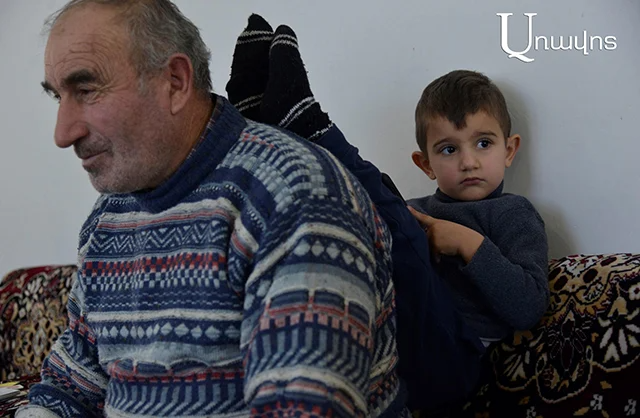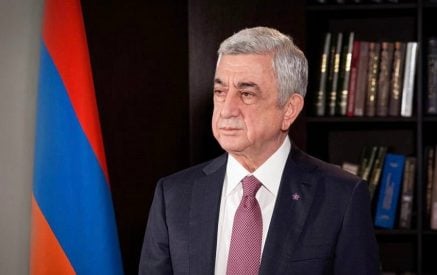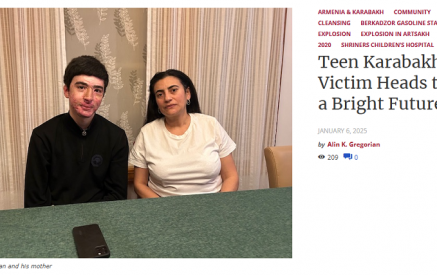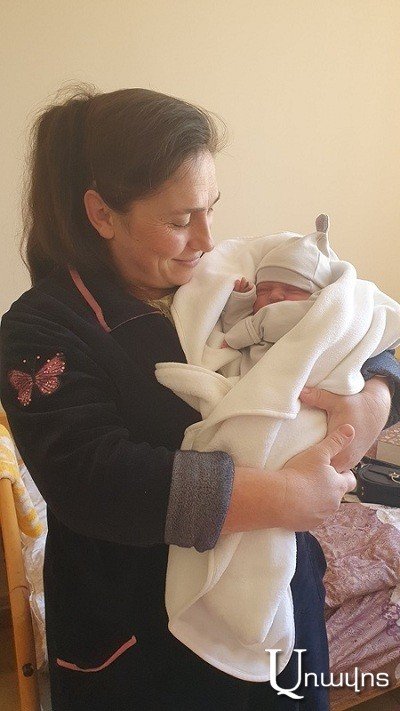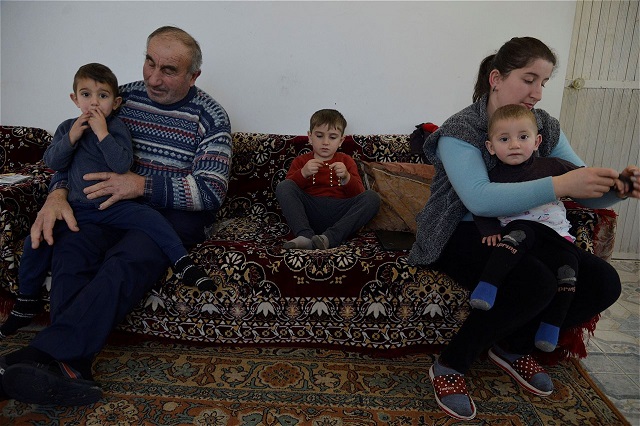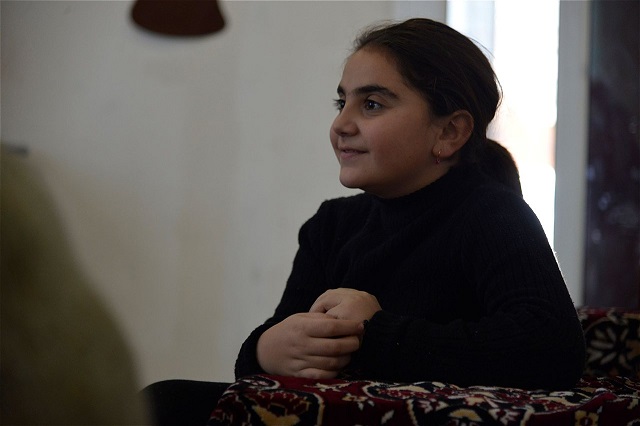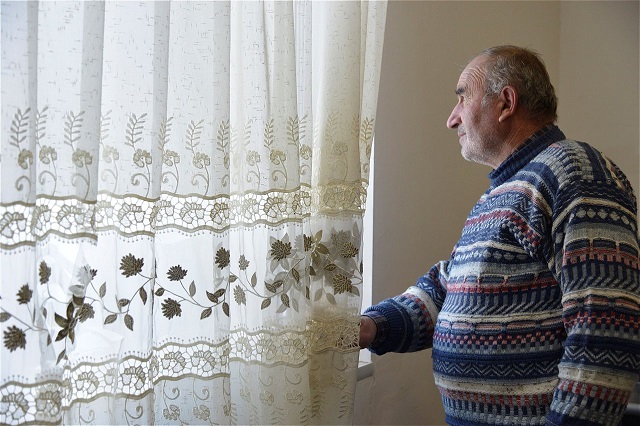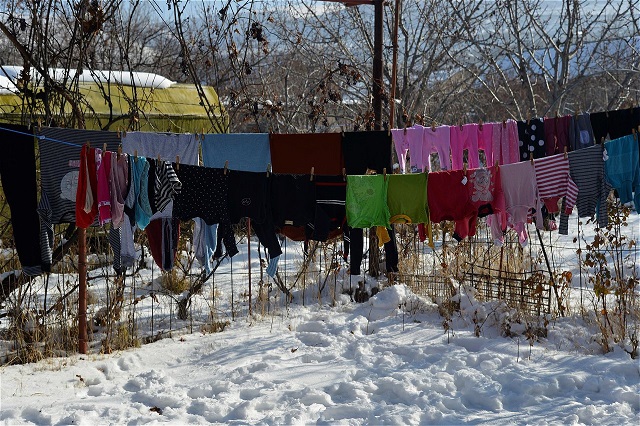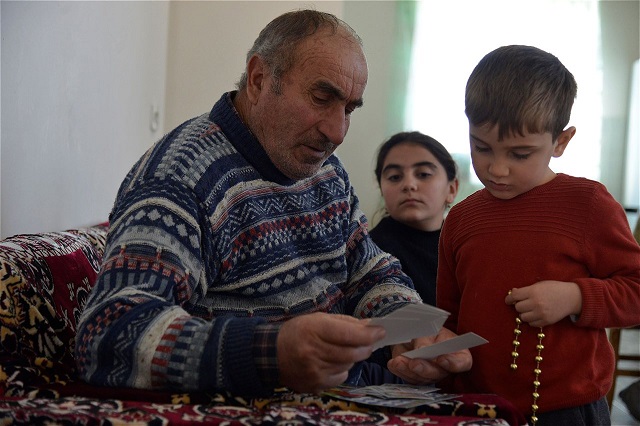“Grandpa, take me to the village.” Four-year-old Harut always asks his grandfather this. His grandfather promises him that they will go back one day.
During the war, Edik Khamperyan left the Hin Tagher village of Hadrut, Artsakh with his grandchildren and daughter-in-law and went to Armenia. At the time, they believed that it would only be for a short time and they would return soon. What else were they supposed to do? They left everything behind, they had to return.
At the beginning of the war, they were unable to hear anything from Hin Tagher. The gunshots were far away, but then they came closer and got louder. The residents received bad news every day; a new village was captured, this person died, this neighbor lost their relative, that neighbor lost their son.
It was already becoming dangerous. Neither the daughter-in-law, Hasmik, nor Ediik Khamperyan wanted to leave the village, but there were small children at home, so they had to leave.
Read also
Hin Tagher remained invincible during the entire 44-day war. The enemy had not entered the village at all during that point, but 33 days after the trilateral agreement was signed on November 9th, Azerbaijan attacked and captured Hin Tagher.
Edik has been living with his family in Charentsavan, Kotayk for four months. They are renting a house. Nine people live in the house- his son’s and daughter’s families.
“I lost everything I worked for my entire life- my farm, cows, and car. But I can’t stop thinking about my house. I need to go back even if nothing has remained. If it were possible, I would go back to see if my house is still there. The Turks always share videos that they have burned homes down, but our house still stands. They can do whatever they want as long as I can go back. I have to start from scratch, so I will start there. I feel good there. The nature and everything else is wonderful. I can’t even walk here,” Edik said. He thinks that the Azerbaijanis have changed. They decapitate people now. He cannot imagine how Armenians will be able to live among them, but it was different during the Soviet Union. They lived among each other, but things weren’t so smooth.
Hasmik Dadayan is Edik’s daughter-in-law. She also misses Hin Tagher, and she is dreaming about the return of Hadrut and Shushi. However, she does not want there to be war more than anything else.
In the early morning of September 27th, Hasmik and her husband were supposed to go to Mayramadzor to gather grapes with her father. On different parts of the route, she said that she was able to see black smoke rising from behind the mountains. They did not understand what had happened. They were able to hear people’s panicked voices at her father’s home near Jabrayil. They understood that war began. They returned to Hin Tagher. Men were already being gathered. Hasmik’s husband also went. He was to transport weapons in his vehicle.
It is not easy for them to live in Charentsavan. Hasmik said that they receive social assistance, but she is unable to feed her children grains every day. Rent and utilities cost 130,000 AMD every month, but none of them are working. They took care of their expenses using the 300,000 AMD one-time assistance payments. “That was money provided to Harutik because he is a child. I did not receive money for my daughters yet. Two months have gone by and they did not transfer it. They rejected the 68,000 AMD for this month, too. It is difficult; we can’t do it. We are thinking about using less gas, but our children get cold that way. Now, the homeowner is telling us that we need to leave before March. We are looking for a new home.”
Hasmik is looking for a job. She is a teacher by profession, and she was supposed to start working in the village before the war started. Now, she does not have any hope that she will be able to find work in her field in Armenia. The employment center promised her that they would help her find something.
Hasmik is not making any plans for the future. She is also not thinking about emigrating now. “I do not want to go to Russia now. I don’t know if I will in a few years. If I have no other choice, I might go for my children’s safety. But we are not even thinking about emigrating now. I want to return to our village every day. I want them to return Hadrut and Shushi to us. I do not think that the war has ended. There needs to be an end to this, but I don’t know how. But I don’t want there to be a war. I want peace. No mother wants her child to see war. I don’t want to lose any more relatives or young people.”
Nelly Babayan




















































